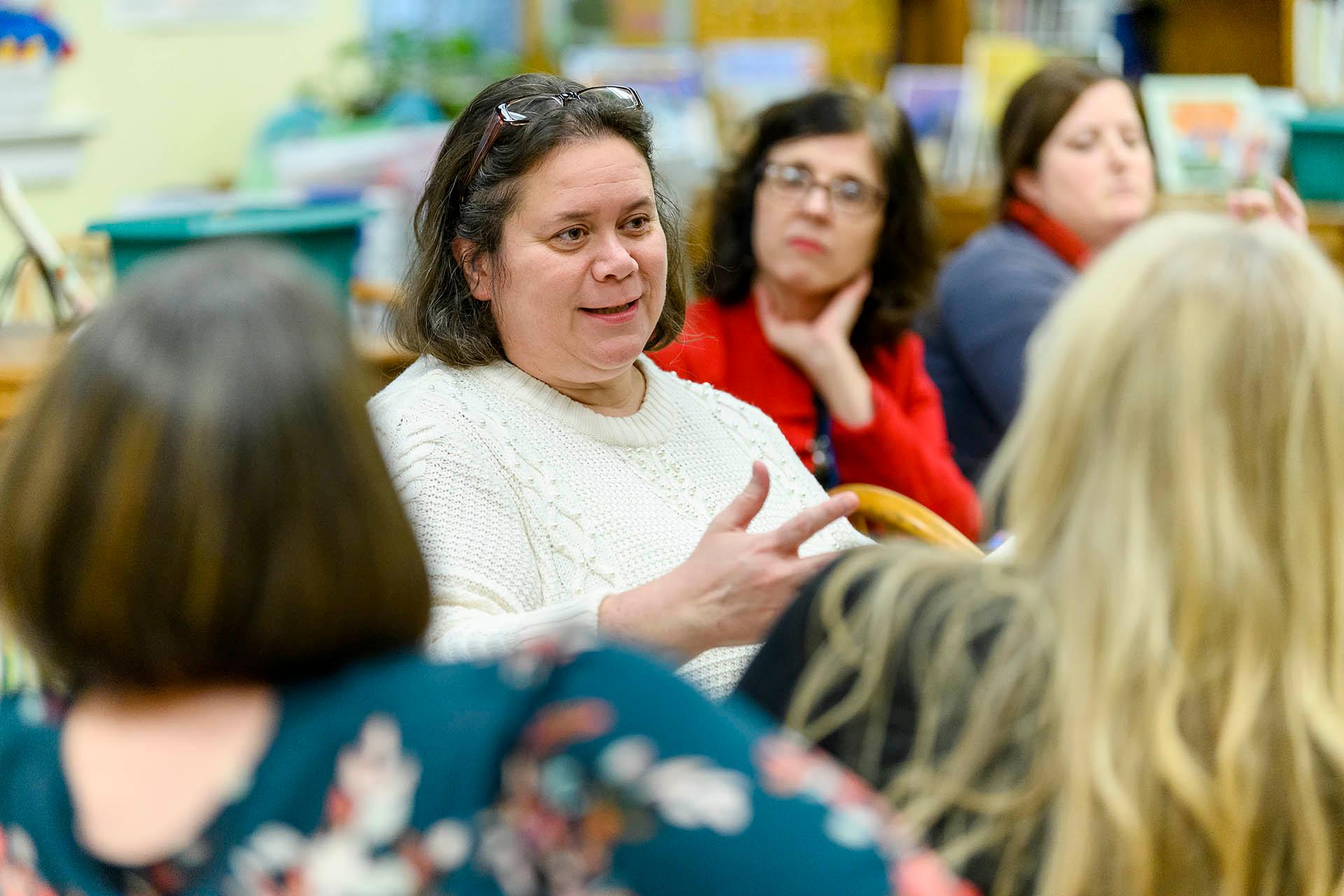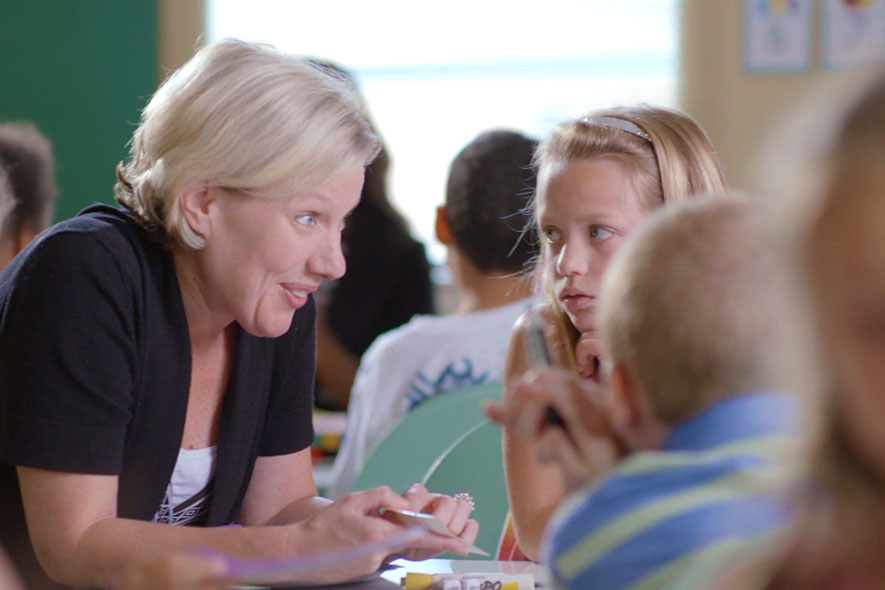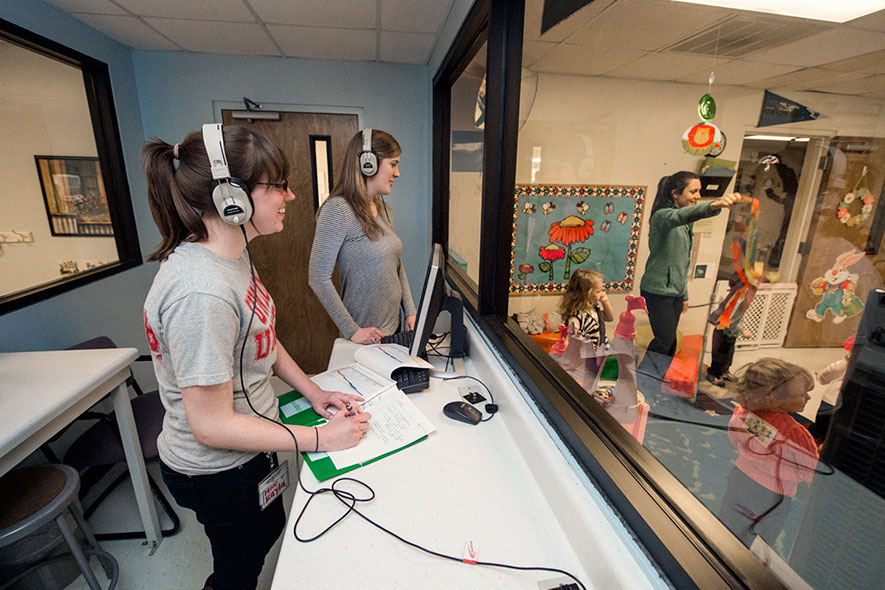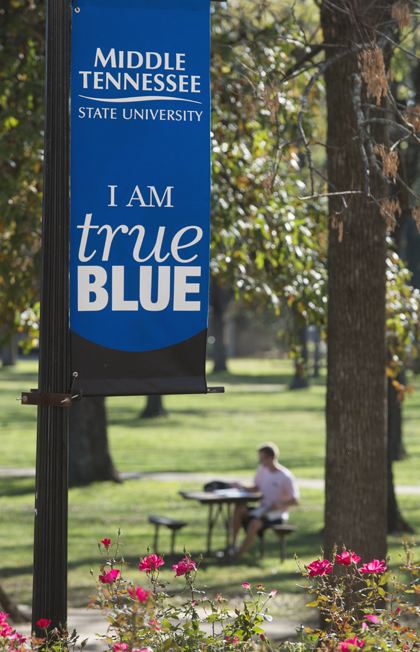
Early Childhood Education
Learn to work with different age groups and how to best help them learn. Make an impact on in a child's formative years.
Early Childhood Education, B.S.
The Bachelor of Science in Early Childhood Education is offered through the College of Education at MTSU. The curriculum for the major in Early Childhood Education offers preparation for teachers in the area of integrated early childhood education and to meet the Tennessee requirements for licensure to teach pre-kindergarten, kindergarten, and first through third grades in collaborative and/or inclusive settings.
If you have a passion for teaching very young children — pre-kindergarten, kindergarten, and grades first through third — consider majoring in Early Childhood Education, an initial licensure teacher preparation program. Being a part of the young child's formative years offers an exciting opportunity in the notable profession of teaching. Future teachers of this impressionable age study the development of the young child within the context of the family; it is the teacher's aim to balance the needs of individual students with desired learning outcomes for all. At MTSU, you can learn how, as a teacher, you can play a significant role during the formative years of the citizens of the future.
News Briefs

Strong partnerships with schools
MTSU's Early Childhood Education program led the way in piloting a residency program, placing students in local classrooms, made possible by creating strong partnerships with area schools. As a part of Early Childhood Education (ECE) coursework, students complete field experiences in kindergarten through grade 3 classrooms to understand how young children learn to read, write, and apply math, science, and social studies concepts. Classroom teachers expect ECE students to be actively engaged, and they encourage them to try out teaching strategies so that they can become better teachers. By working with exemplary mentor teachers, students are prepared for the classroom when they graduate.

Learning from play
What looks like a really fun place to play with friends is actually a teaching laboratory for students in child development and early childhood education. The Child Development Center, with accredited programs for toddlers and preschool children, gives students opportunities to learn how children grow and develop through practical experiences. Students plan learning activities and engage with young children and their parents, while being mentored and supported by master early childhood teachers. In a setting that welcomes diversity and encourages parental involvement, future teachers get solid training in an enriched environment.
News Briefs
Strong partnerships with schools

MTSU's Early Childhood Education program led the way in piloting a residency program, placing students in local classrooms, made possible by creating strong partnerships with area schools. As a part of Early Childhood Education (ECE) coursework, students complete field experiences in kindergarten through grade 3 classrooms to understand how young children learn to read, write, and apply math, science, and social studies concepts. Classroom teachers expect ECE students to be actively engaged, and they encourage them to try out teaching strategies so that they can become better teachers. By working with exemplary mentor teachers, students are prepared for the classroom when they graduate.
Learning from play

What looks like a really fun place to play with friends is actually a teaching laboratory for students in child development and early childhood education. The Child Development Center, with accredited programs for toddlers and preschool children, gives students opportunities to learn how children grow and develop through practical experiences. Students plan learning activities and engage with young children and their parents, while being mentored and supported by master early childhood teachers. In a setting that welcomes diversity and encourages parental involvement, future teachers get solid training in an enriched environment.
Related Media

Individuals trained to teach bring a desirable range of expertise and creativity to planning and administrative roles. Graduates completing their teacher preparation at MTSU are found in public and private school classrooms throughout Tennessee and in many other states. In addition to classroom teaching, other career options include
- Agency and administrative work
- Community and foundation work
- Consulting, professional development, and teacher training
- Education policy development
- Education marketing and research
- Higher education teaching and administration
- Private tutoring
Educators who studied at MTSU are employed in a variety of settings that include the Tennessee Department of Education and other state agencies, community colleges and universities, Head Start programs, and tutoring services. Graduates are employed in public and private schools and school districts throughout the country as well as in Tennessee.
Among the employers of MTSU alumni are
- Anderson County Schools
- Bedford County Schools
- Cannon County Schools
- Carroll County Schools
- Cheatham County Schools
- Coffee County Schools
- Collierville Christian Academy
- Crockett County Schools
- Cumberland County Schools
- DeKalb County Schools
- Dickson County Schools
- Dyer County Schools
- Fayette County Schools
- Fayetteville City Schools
- Franklin Special School District
- Giles County Schools
- Grundy County Schools
- Hamilton County Schools
- Hardeman County Schools
- Hickman County Schools
- Kids Connection
- Knox County Schools
- Lawrence County Schools
- Lebanon Special School District
- Lewis County Schools
- Lincoln County Schools
- Macon County Schools
- Madison County Schools
- Manchester City Schools
- Marion County Schools
- Marshall County Schools
- Maury County Schools
- McNairy County Schools
- Memphis and Shelby County Schools
- Metro Action Commission, Nashville
- Metropolitan Nashville Public Schools
- Middle Tennessee Christian School, Murfreesboro
- Montgomery County Schools
- Moore County Schools
- Murfreesboro City Schools
- Perry County Schools
- Providence Christian Academy, Murfreesboro
- Robertson County Schools
- Rutherford County Schools
- Sequatchie County Schools
- Sumner County Schools
- The Webb School, Bell Buckle
- Trousdale County Schools
- Tullahoma City Schools,
- Warren County Schools
- Wayne County Schools
- White County Schools
- Williamson County Schools
- Wilson County Schools



CONTACT US

Please fill in the form below and we will contact you very soon













